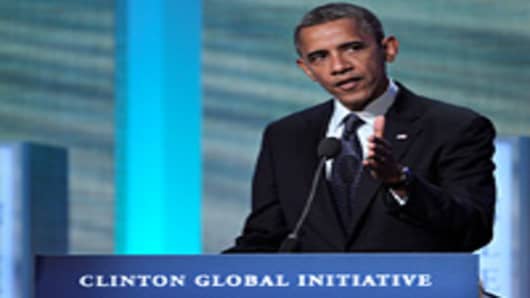President Barack Obama lashed out a “modern slavery” during his speech to the Clinton Global Initiative Tuesday, announcing a new executive order expressly banning U.S. government contractors from engaging in human trafficking.
The contrast with Mitt Romney’s speech earlier in the day was notable.
Where Romney stuck to the broad outlines of his plan for foreign policy, Obama came to the podium with a very specific policy announcement. It’s even got its own fact sheet. No doubt this was intentional — we were meant to notice. (More:Hillary Clinton: Raise Taxes on the Rich Everywhere)
But one of the problems with coming to the table with specifics is that this tactic opens you up to criticism. Obama’s executive order, for example, seems to overreach. It creates a bunch of new requirements for U.S. companies doing business with the government, requirements they will have to fulfill even in circumstances far removed from human trafficking.
As I read the executive order, for example, it requires government contractors to pay for the return trip when work is done internationally. For many types of expatriate work for government contractors, I would think the arrangement about who pays for transportation should be a matter of negotiation rather than regulation. Now it seems, at the very least, employees who don’t want their employer picking up the return ticket home will probably have to sign some kind of official waiver. (More:The UN's Idea of Freedom, and Ours)
This isn’t fatal to Obama’s program. A bit more bureaucracy and paperwork may just be the price we need to pay for making progress against human trafficking. But it is worth our attention to notice that yet again our well-meaning policy goals come festooned with trails of red tape.
- by CNBC senior editor John Carney















